Worst Foods for Diarrhea, According to Experts
By Dr. Vishesh Bharucha +2 more

Get,

to manage your symptom
Get your,


4 Cr+ families
benefitted

OTP sent to 9988776655



You’ve successfully subscribed to receive
doctor-approved tips on
Whatsapp

Get ready to feel your best.

Hi There,
Download the PharmEasy App now!!


Register to Avail the Offer
Send OTPBy continuing, you agree with our Privacy Policy and Terms and Conditions

Hi There,
Sign up on PharmEasy now!!
Trusted by 4 crore+ families

OTP sent to 9988776655



You have unlocked 25% off on medicines




Code: NU25
By Dr. Vishesh Bharucha +2 more
Table of Contents
Diarrhoea, commonly described as the frequent passage of loose or watery stools, is a condition that can range from mild to uncomfortable. While often caused by infections, it may also result from non-infectious factors such as irritable bowel syndrome (IBS), inflammatory bowel disease (IBD), certain medications, or food intolerances like lactose intolerance. Managing diarrhoea effectively begins with proper medical diagnosis, as treatment varies based on the underlying cause1.
Diet also plays a crucial role as some foods may aggravate symptoms, while others can help recovery2. This guide offers general dietary advice to help manage diarrhoea more comfortably. It is not intended to replace professional medical consultation; individuals with ongoing or severe symptoms should seek advice from a healthcare professional.

Diarrhoea can occur for a variety of reasons, and identifying the underlying cause is important in guiding appropriate treatment. Some common causes of diarrhoea include:
Infectious causes are among the most common reasons for acute diarrhoea. Bacteria, viruses, and parasites can all lead to sudden episodes, often resulting from contaminated food, water, or poor hygiene practices.
Parasitic infections, such as those caused by Giardia lamblia and Cryptosporidium, can lead to diarrhoea. Giardia is typically waterborne and is most often contracted through drinking or swallowing contaminated water; foodborne transmission is uncommon. Cryptosporidium is also associated with contaminated water, particularly recreational sources like swimming pools, and may pose a greater risk to individuals with weakened immune systems1.
For some individuals, certain food ingredients can be difficult to digest, leading to diarrhoea. This may be due to food intolerances or sensitivities, where the body reacts adversely to specific components in food.
Certain medications, including some antibiotics, antacids, and anti-inflammatory drugs, can cause diarrhoea as a side effect. For example, magnesium-containing antacids and non-steroidal anti-inflammatory drugs (NSAIDs) such as ibuprofen may lead to diarrhoea in some individuals1.
Chronic conditions like Crohn’s disease, ulcerative colitis, and irritable bowel syndrome (IBS) can cause recurrent episodes of diarrhoea. These long-term disorders affect the digestive system and may lead to persistent or intermittent symptoms that require ongoing medical management3.
When managing diarrhoea, it is best to avoid certain foods that may worsen symptoms or delay recovery. These foods include:
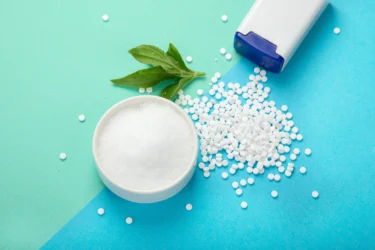
Excessive sugar intake can trigger diarrhoea, as certain sugars draw water into the intestines, worsening symptoms. Artificial sweeteners, particularly sugar alcohols, may also have a laxative and should be avoided during diarrhoea2.
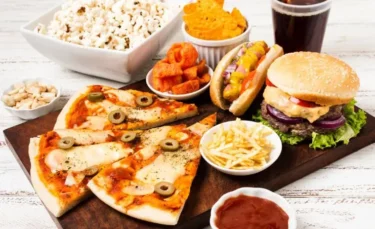
Fatty foods are often difficult to digest and can aggravate diarrhoea symptoms, potentially prolonging discomfort and recovery3.
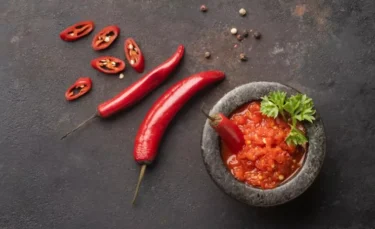
Spicy foods can irritate the digestive system and worsen diarrhoea4.

Lactose, found in dairy products, can be difficult to digest, especially during diarrhoea5.
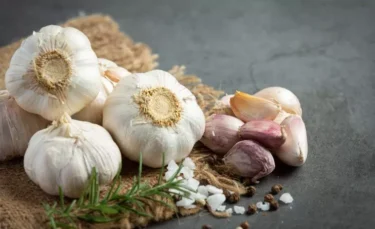
Certain fermentable carbohydrates known as FODMAPs can be hard to digest and may trigger diarrhoea, especially in individuals with chronic digestive conditions such as irritable bowel syndrome (IBS)6.
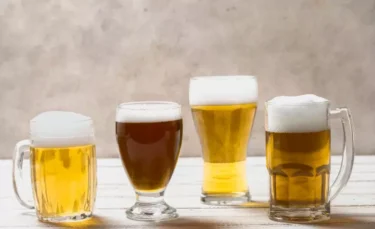
Alcohol can irritate the digestive tract and worsen diarrhoea4.
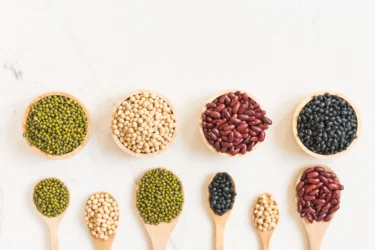
While these foods do not directly cause diarrhoea, the gas can speed up intestinal movement and lead to bloating and cramping, which may worsen symptoms4.
Here are some healthy food options to consider when managing diarrhoea:
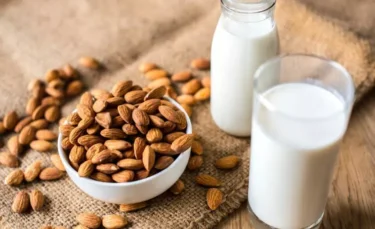
If dairy worsens your diarrhoea, consider these alternatives3:
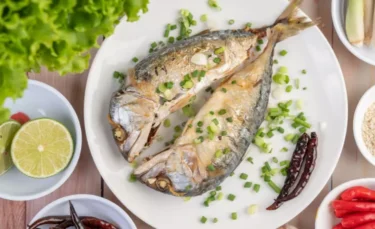
Choose low-fat and baked foods rather than oily or fried items3.
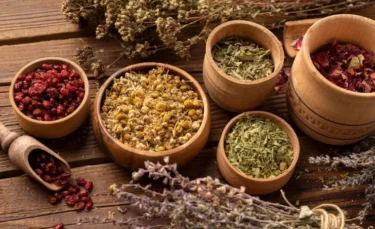
Opt for mild flavours that are less likely to irritate your intestines3.
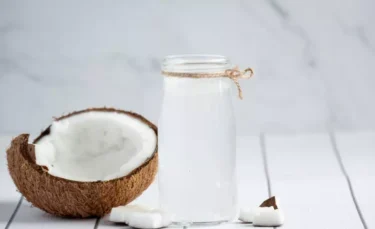
Avoid caffeinated drinks, which can stimulate the digestive tract3.
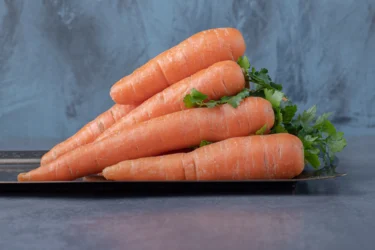
Low-FODMAP foods are less likely to trigger diarrhoea or inflammation4.
Managing diarrhoea effectively involves several key steps. Staying well hydrated is essential, as diarrhoea causes significant fluid and electrolyte loss that can lead to dehydration. While drinking plenty of water helps replace lost fluids, it does not restore vital electrolytes such as sodium and potassium. Oral rehydration solutions (ORS), either commercially prepared or homemade to replenish both fluids and electrolytes1. If vomiting accompanies diarrhoea, antiemetic medications may be helpful, but it is important to consult a healthcare provider before use. Additionally, allowing your body ample rest and relaxation supports recovery and helps the healing process.
It is crucial to monitor your diarrhoea symptoms carefully and avoid self-medication. Seek immediate medical attention or visit the nearest hospital if you experience any of the following8,9:
Signs of severe dehydration:
Preventing diarrhoea or reducing its frequency involves managing underlying health conditions, maintaining good hygiene, and addressing food sensitivities. Key measures include10:
Also Read: Worst Foods for Oedema You Should Be Aware Of
Diarrhoea can result from multiple factors, and certain foods may worsen symptoms. Avoiding foods such as dairy products, high-fat items, sugar alcohols, caffeine, spicy foods, alcohol, and gas-producing foods can support a quicker recovery. Instead, choosing healthier alternatives, monitoring for signs of dehydration, and seeking medical attention when necessary are essential steps. Making informed dietary choices plays a significant role in how swiftly you recover from diarrhoea.
The worst foods for diarrhoea include dairy, high-fat and spicy foods, sugar alcohols, caffeine, alcohol, and gas-producing vegetables.
Foods that may help ease diarrhoea include curd (yoghurt with live cultures), plain white rice, oatmeal, ripe bananas, plain khichdi (a mild rice and lentil dish), baked fish, cooked carrots, and bell peppers. Gentle beverages like herbal teas (such as chamomile or peppermint) and fluids like coconut water can support hydration. For those sensitive to lactose, lactose-free milk or plant-based alternatives may be suitable, though it is best to choose varieties without added sugars or high-FODMAP ingredients7.
Diarrhoea often resolves on its own within two to three days. However, the duration can vary significantly depending on the underlying cause, overall health, and individual response to treatment or dietary changes. If symptoms persist beyond a few days or worsen, medical evaluation is recommended.
Yes, foods that are high in fat, contain sugar substitutes (such as sorbitol or xylitol), or are particularly spicy can trigger diarrhoea even in individuals without specific intolerances. These foods may irritate the digestive tract, increase gut motility, or draw excess water into the intestines, leading to loose stools in some people.
Over-the-counter medicines, such as diarrhoea-reducing agents (e.g. loperamide) and antiemetics, are generally considered safe for short-term use. However, it is important to consult your healthcare provider before taking these medications to ensure they are appropriate for your specific condition and to avoid masking symptoms of a more serious underlying issue.
To help stop diarrhoea, it is important to stay well hydrated by drinking plenty of fluids, including water and oral rehydration solutions. Eating bland, easily digestible foods such as bananas, plain rice, and toast can support recovery. Over-the-counter medications may offer relief, but it’s advisable to consult a doctor before using them. If symptoms persist or worsen, seek medical attention for appropriate diagnosis and personalised treatment.
Consuming spicy food can lead to diarrhoea within a few hours in some individuals. This is often due to capsaicin, a compound found in chilli peppers, which can irritate the digestive tract and speed up bowel movements. However, individual tolerance to spicy foods varies, and not everyone will experience this effect.
Consuming greasy or high-fat foods can potentially lead to diarrhoea, as these meals may overstimulate the digestive system and accelerate bowel movements. This is particularly true for individuals with sensitive digestive systems or underlying gastrointestinal conditions. However, responses vary from person to person, and not everyone will experience diarrhoea after eating greasy foods.
Yes, food poisoning is a common cause of diarrhoea. It occurs when harmful bacteria, viruses, or parasites are ingested through contaminated food or water. These infectious agents can irritate the digestive tract, and diarrhoea is the body’s natural response to help flush them out. Symptoms may also include nausea, vomiting, abdominal cramps, and fever, depending on the type and severity of the infection.
Disclaimer: The information provided here is for educational/awareness purposes only and is not intended to be a substitute for medical treatment by a healthcare professional and should not be relied upon to diagnose or treat any medical condition. The reader should consult a registered medical practitioner to determine the appropriateness of the information and before consuming any medication. PharmEasy does not provide any guarantee or warranty (express or implied) regarding the accuracy, adequacy, completeness, legality, reliability or usefulness of the information; and disclaims any liability arising thereof.
Comments

Leave your comment...
You may also like
Comments